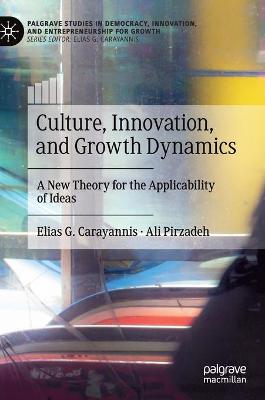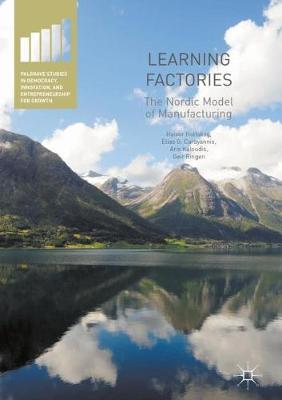Palgrave Studies in Democracy, Innovation, and Entrepreneurship for Growth
2 total works
Culture, Innovation, and Growth Dynamics
by Elias G. Carayannis, Ali Pirzadeh, and Denisa Popescu
Published 5 October 2021
This book argues that ideas in the social realm are the context-bound products of distinct histories and cultures and thus cannot be co-opted across place and time. When ideas are used out of context, they become mere empty words that are depicted as absolute ideals, independent of the specific historical circumstances in which they were conceived. Therefore, highly ideologically guidelines based on one-size-fits-all principles are doomed to fail. The book emphasizes that the dominant Western intellectual paradigm has not improved human society in either Western or non-Western parts of the world. Some of the book's objectives are to rethink the dominant paradigm and invent a new world. We face an existential crisis that requires a new vision of the world and its well-being: one that is more inclusive and attentive to the diversity of people, histories, and cultures. We must remember that diversity in beliefs and values is the very essence of our humanity. This seminal work is essentialreading for researchers of economic growth and development, political science, and innovation.
Learning Factories
by Halvor Holtskog, Elias G. Carayannis, Aris Kaloudis, and Geir Ringen
Published 24 October 2017
This book examines how the norms, culture, and practices of the socio-economic Nordic model give them a competitive edge in globalized production chains. Using the Norwegian automotive industry – one of the most globalized industries in the world – as the empirical foundation of the book, it examines the strengths, tensions, and challenges the Norwegian work organization style meets in this particular business environment. It explores the current indicators of competitiveness, innovation, scientific excellence, and well-being as compared with the US, UK, EU, Japan, and elsewhere to address the hotly debated question of how institutions and culture contribute to or inhibit certain forms of work organization, learning, and economic performance.
Integrating action research, organization studies, and learning and innovation economics, this book provides a more precise understanding of how institutions and cultures at a macro level shape learning practices in a competitive industry.
Integrating action research, organization studies, and learning and innovation economics, this book provides a more precise understanding of how institutions and cultures at a macro level shape learning practices in a competitive industry.

